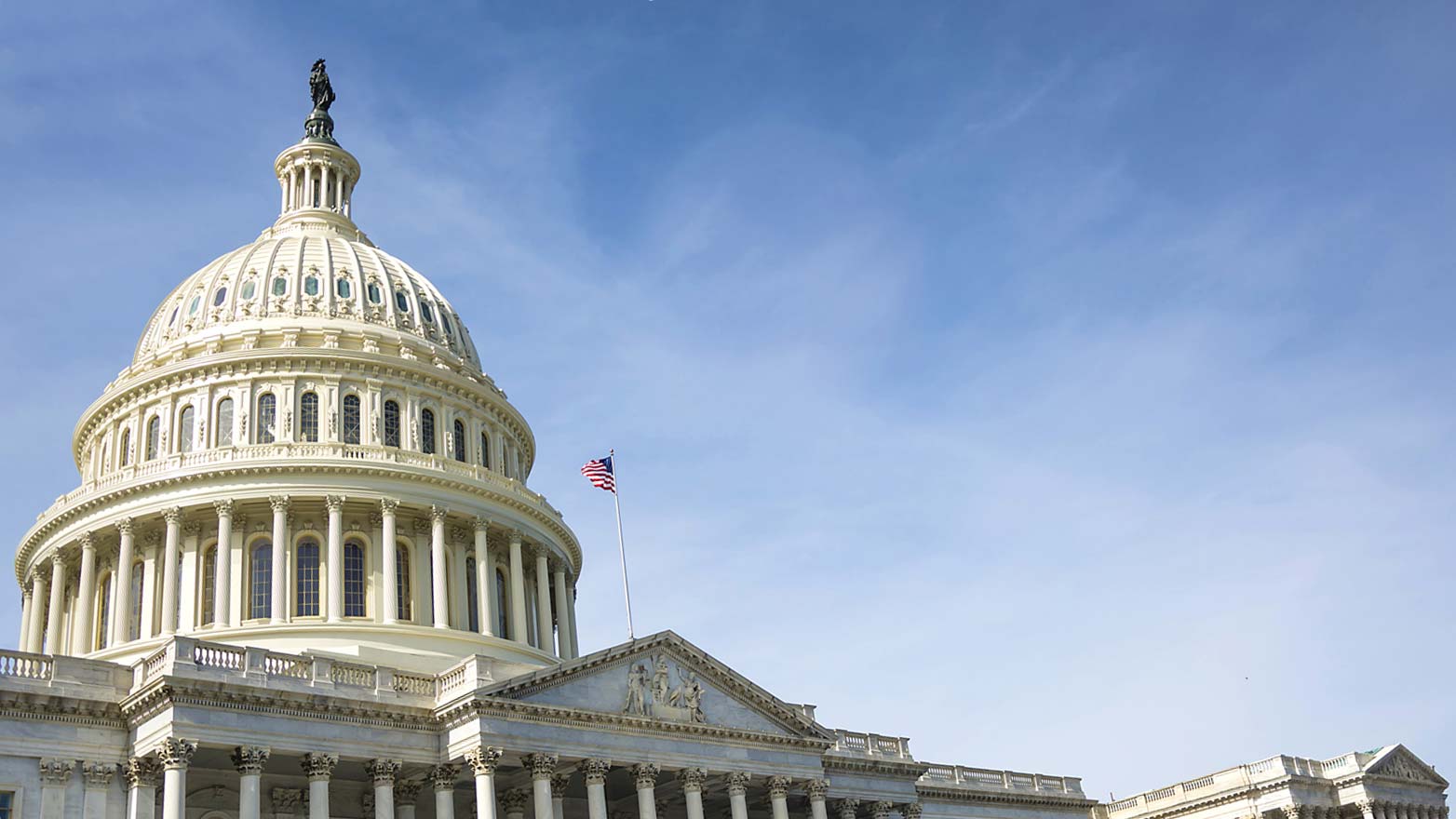U.S. Treasury Securities Clearing Agency Standards: SEC Final Rule
Enhanced treasury securities risk management practices, customer protections, and clearing & settlement standards

Regulatory Insights
- Technology & Operations Impacts: Prepare for likely large impacts given the expanded scope of transactions subject to clearing requirements.
- Financial System Safety: Enhanced risk management requirements to facilitate access to clearing and settlement services (for direct and indirect participants), reduce risk, and increase operational efficiencies as well as market confidence.
- Customer Protections. Changes to margin practices and the customer reserve formula increase transparency and reduce costs.
______________________________________________________________________________________________________________________________________________________________________
December 2023
The Securities and Exchange Commission (SEC) adopts final rules under the Securities Exchange Act of 1934 (Exchange Act) to amend the standards for covered clearing agencies (CCAs) of U.S. Treasury securities to require that CCAs have written policies and procedures reasonably designed to require that every direct participant of the CCA submit for clearance and settlement all eligible secondary market transactions in U.S. Treasury securities to which it (the direct participant) is a counterparty.
The final rules, outlined in more detail below, are intended to protect investors, reduce risk, and increase operational efficiencies.
Applicability and Scope. The final rules apply to “direct participants” in U.S. Treasury securities CCAs (i.e., members of the CCA).
- The final rules distinguish between entities that access a CCA directly (e.g., banks and broker-dealers) from indirect participants that “rely on the services provided by direct participants to access the CCA’s payment, clearing, or settlement facilities” (e.g., customers or clients), excluding certain transactions with indirect participants from eligible transactions.
Clearing Eligible Secondary Market Transactions. Rule 17ad-22(e)(18)(iv) is adopted as proposed, and requires that U.S. Treasury securities CCAs establish, implement, maintain, and enforce written policies and procedures reasonably designed to establish objective, risk-based, and publicly disclosed criteria for participation. The policies and procedures must:
- Require that direct participants of a CCA submit for clearance and settlement all eligible secondary market transactions to which they are a counterparty.
- Include processes to identify and monitor direct participants' transaction submissions for clearing, as well as address participants’ failure to submit transactions.
- Apply to all transaction types currently accepted for clearing at a U.S. Treasury securities CCA, including those defined below.
Definition of Eligible Secondary Market Transactions. Rule 17ad-22(a) is adopted with modifications and provides definitions for eligible secondary market transactions in U.S. Treasury securities that are subject to the requirements for clearing and settlement, including:
- Repurchase (repo) and reverse repo agreements where one counterparty is a direct participant. SEC excludes from the definition of an eligible secondary market transaction any repo or reverse repo agreements that are collateralized by U.S. Treasury securities where:
- One counterparty is a CCA providing central counterparty (CCP) services, a derivatives clearing organization (DCO), or is regulated as a CCP in its home jurisdiction.
- One counterparty is a state or local government.
- A direct participant and an affiliated counterparty enter the agreement, provided that the affiliated counterparty submits for clearance and settlement all other repo or reverse repo agreements collateralized by U.S. Treasury securities to which the affiliated counterparty is a party.
- Purchases and sales entered into between a direct participant and any counterparty if the direct participant brings buyers and sellers together using a trading facility (e.g., limit order book) and is a counterparty for both buyer and seller in two separate transactions.
- Purchases and sales between a direct participant and a registered broker-dealer, government securities dealer, or government securities broker, except where one counterparty is a central bank, a sovereign entity, an international financial institution (as defined) or a natural person.
- The SEC did not adopt proposed provisions that would have included purchases and sales of U.S. Treasury securities between a direct participant and hedge funds or “leverage accounts” under the definition of an “eligible secondary market transaction”.
Additional Changes to Covered Clearing Agency Standards. The final rules amend the existing CCA Standards around netting and margin practices and facilitating access to clearance and settlement services as follows:
- Rule 17ad-22(e)(6)(i) is adopted as proposed and requires CCAs to establish, implement, maintain, and enforce written policies and procedures reasonably designed to, as applicable, calculate, collect, and hold margin amounts from a direct participant for its proprietary U.S. Treasury securities positions separately and independently from margin posted by the direct participant in connection with U.S. Treasury securities transactions by an indirect participant. This prohibits CCAs from netting customer and proprietary positions.
- Rule 17ad-22(e)(18)(iv)(C) is also adopted as proposed and requires CCAs to establish, implement, maintain, and enforce written policies and procedures reasonably designed to, as applicable, facilitate access to clearance and settlement services of all eligible secondary market transactions in U.S. Treasury securities, including those of indirect participants. The CCA’s board of directors is to review these policies and procedures annually.
Amendments to Rule 15c3-3a (Broker-Dealer Customer Protection). These amendments are intended to address concerns of a potential increase in broker-dealers’ margin requirements due to adoption of the final rules. The amendments permit customer position margin (required and on deposit at a U.S. Treasury securities CCA) to be included as a debit item (new Item 15) in the customer reserve formula, subject to certain conditions (outlined below). The debit item will offset credit items in the formula, thereby freeing resources that can be used to meet the margin requirements of a CCA. The conditions require:
- The debit item is limited to customer position margin in the form of cash or U.S. Treasury securities.
- Broker-dealers must use a particular customer's assets exclusively to meet the amount of the customer position margin requirement resulting from that customer's cleared U.S. Treasury securities positions.
- Customer position margin must be treated in accordance with the CCA’s rules designed to protect and segregate the customer position margin, with the U.S. Treasury securities CCA and broker-dealer in compliance with those rules.
- The SEC must approve the CCA’s rules and post a notice that broker-dealers may include a debit in the customer reserve formula.
- The amendments similarly update the reserve computation for proprietary accounts of broker-dealers (PAB accounts) to align with the amendments to the debit and credit items.
Compliance Dates. U.S. Treasury securities CCAs must file proposed rule changes on:
- Segregation of house and customer margin, access to clearance and settlement services, and Rule 15c3-3a within sixty (60) days after the final rules’ publication in the Federal Register. These rule changes must be finalized and effective by March 31, 2025.
- Requirements to clear eligible secondary market transactions and monitoring of the submissions of transactions within 150 days after the final rules’ publication in the Federal Register. These rule changes must be finalized and effective by December 31, 2025 for cash market transactions and June 30, 2026 for repo transactions.
Dive into our thinking:
U.S. Treasury Securities Clearing Agency Standards: SEC Final Rule
Enhanced treasury securities risk management practices, customer protections, and clearing & settlement standards
Download PDFExplore more

Aim to make the US Treasury market more resilient and competitive
New standards for centralized clearing of US Treasury securities and application of broker-dealer customer protection rule

Points of View
Insights and analyses of emerging regulatory issues and their impact.

Regulatory Insights View
Series covering regulatory trends and emerging topics

Regulatory Alerts
Quick hitting summaries of specific regulatory developments and their impact.
Get the latest from KPMG Regulatory Insights
KPMG Regulatory Insights is the thought leader hub for timely insight on risk and regulatory developments.
Meet our team



